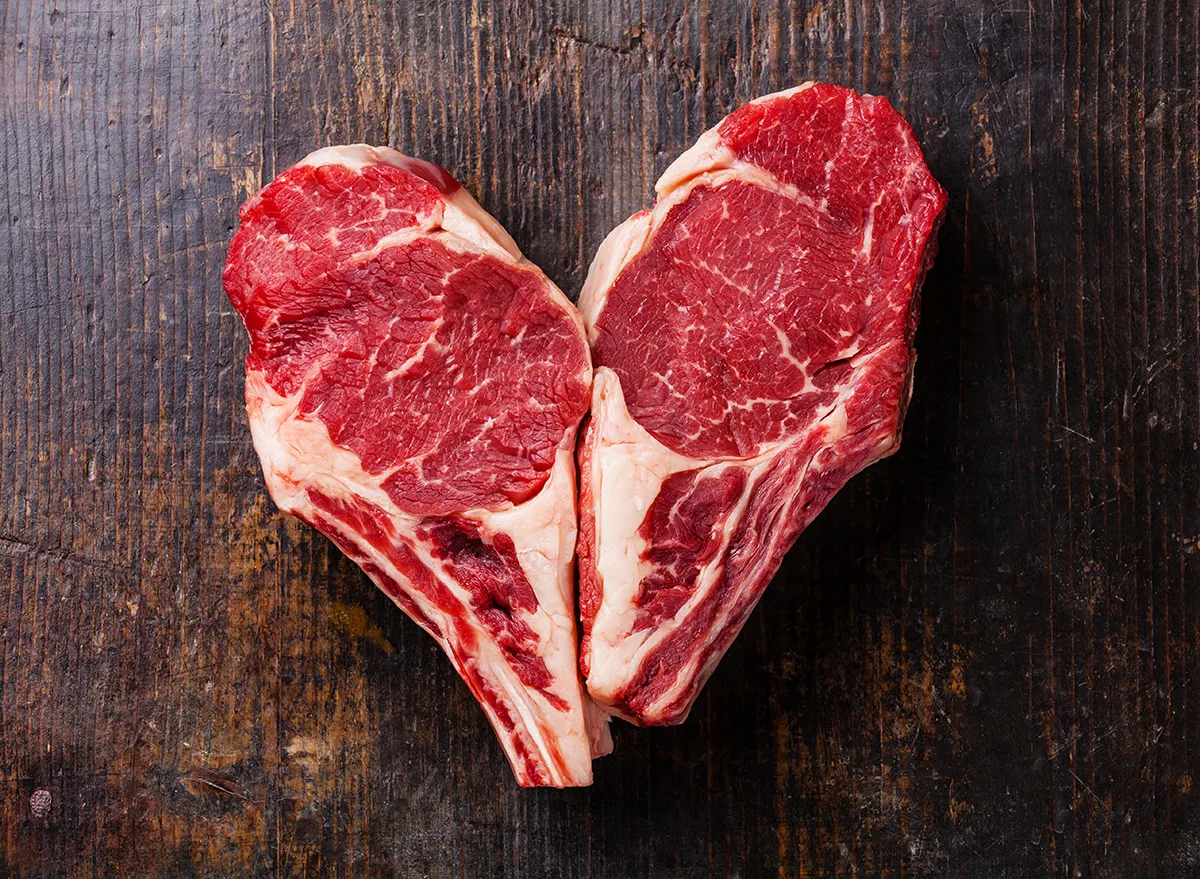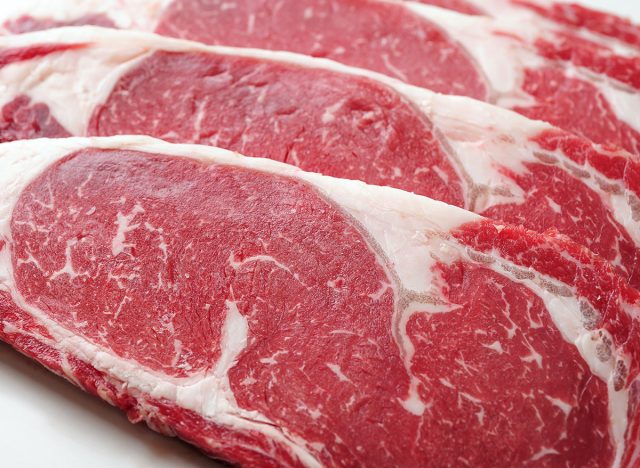Red Meat Is Even Worse for Your Heart Than We Thought, Says New Study

The debate over red meat has raged for a long time. Can it ever be good for you, or should it be avoided at all costs? Is a lean piece of steak a better choice than, say, a fried chicken thigh? The questions are endless. But a new study published in the American Heart Association's journal, Arteriosclerosis, Thrombosis, and Vascular Biology, offers the latest answer.
The research showed that consuming red meat led to a significant amount of higher-risk cardiovascular disease (CVD). In other words, most people should be wary of how much red meat they consume, but that's especially true for those with heart issues.
For this study, researchers measured levels of the metabolites—a substance made or used when the body breaks down food, drugs or chemicals, or its own tissue—in blood samples. Other factors examined were blood sugar, inflammation, blood pressure, and blood cholesterol. Researchers examined whether these factors also played a role in the elevated cardiovascular risk associated with red meat consumption.
The study used data from participants in a previous cardiovascular health study. Researchers compared the risk of CVD among participants who ate varying amounts of animal-sourced foods, including red meat, processed meat, fish, chicken, and eggs.
The final research indicated that eating more red and processed meat was linked to a higher risk of atherosclerotic CVD. On average, that equated to a 22% higher risk per approximately 1.1 serving per day. Some of the red meats studied included beef, pork, bison, and venison.
About one-tenth of this elevated risk was attributed to the increase in the metabolite trimethylamine N-oxide (TMAO), found in the blood. TMAO contains high amounts of the chemical L-carnitine and is produced by gut bacteria to digest red meat. The same goes for the other related metabolites found.

Researchers also noticed that high blood sugar and inflammation may also contribute to the higher cardiovascular risk linked to red meat consumption. Factors not associated were blood pressure and cholesterol.
"This study had a very large sample size and was conducted over many years, which increases the usability of these results," says Molly Hembree, MS, RD, LD, and member of our Medical Expert Board.
According to Hembree, CVD continues to be the #1 killer among Americans. She believes evolving nutrition research in this field is exciting.
"It is helpful to keep in mind that researchers were able to figure that the alteration in this gut microbe metabolite accounts for about 1/10 of elevated CVD risk," she says. "It is a good reminder that many health habits matter. Not only reduction of red meat, but in reducing CVD risk."








